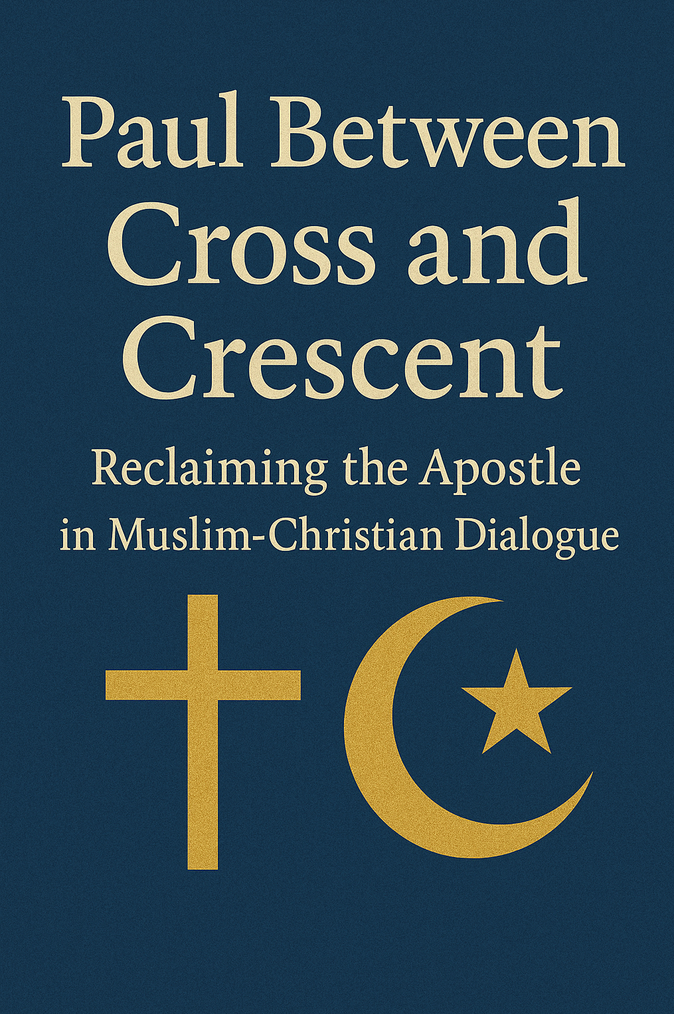

By Dr. Tim Orr
Few figures provoke more theological disagreement between Christians and Muslims than the Apostle Paul. Christians honor Paul as a foundational theologian and missionary whose writings clarify the implications of Jesus’ life, death, and resurrection. His teachings on justification by faith, God’s grace, and the inclusion of Gentiles are seen as essential developments within the story of Israel’s Messiah (Wright, 2013). He is not viewed in isolation, but as part of the apostolic community, alongside Peter, James, and John.
In contrast, Paul’s reputation is far more contentious in Islamic contexts. Muslims revere Jesus (ʿĪsā) as a prophet who called people to worship one God and uphold monotheism (tawḥīd) emphasized throughout the Qur’an. Any teaching that deviates from this—including the divinity of Christ and the atonement—appears to many Muslims as a theological corruption. Paul is often seen not as a transmitter of Jesus’ message, but as someone who reshaped it, incorporating ideas foreign to Semitic monotheism (Esack, 1997).
The Islamic Critique and Emerging Nuances
The Qur’an explicitly denies the crucifixion of Jesus: “They did not kill him, nor did they crucify him, but it was made to appear so to them” (Qur’an 4, 157). From this starting point, many Muslims reject Paul’s message, which places the cross and resurrection at the center of salvation. Islamic tradition also teaches that the Injīl—God’s message to Jesus—was either lost or corrupted over time (Qur’an 2, 79; 5, 13). Paul’s letters are often viewed as part of that corruption, accused of introducing the concepts of original sin, divine sonship, and salvation through vicarious sacrifice—ideas seen as incompatible with the justice and unity of God (Nasr, Dagli, Dakake, Lumbard, & Rustom, 2015).
Nevertheless, not all Muslim scholars paint Paul with the same brush. Mustafa Akyol (2017) argues in The Islamic Jesus that Paul should be seen not as a villain, but as a sincere thinker grappling with how to universalize Jesus’ message. Though Akyol disagrees with Paul’s conclusions, he urges Muslims to appreciate Paul within his Jewish and Greco-Roman context. Likewise, Mahmoud Ayoub (1984) finds a sophisticated moral vision in Paul's letters, even if doctrinally flawed. Such approaches enable interfaith engagement rooted in empathy and historical understanding.
The Christian Defense: Continuity, Not Invention
Christian theologians push back against the idea that Paul invented Christianity. They point to early practices—such as the Lord’s Supper (1 Corinthians 11, 23–26) and worship of Jesus as Lord (Romans 10, 9; Philippians 2, 11)—that predate Paul’s writings and reflect a “high Christology” already present in the earliest Christian communities (Hurtado, 2005). Philippians 2, 5–11, often cited for its exalted view of Christ, is widely believed to preserve an early Christian hymn that Paul incorporated into his letter. This suggests that Paul was not innovating, but rather systematizing what the church already believed.
Furthermore, Paul claims direct revelation from the risen Christ (Galatians 1, 11–12), and the other apostles affirmed his message. The Jerusalem Council (Acts 15) endorsed his mission to the Gentiles, and Peter referred to Paul’s writings as “Scripture” (2 Peter 3, 15–16). N. T. Wright (2013) emphasizes that Paul saw himself not as departing from Judaism, but as proclaiming its fulfillment in Jesus the Messiah. Framed this way, Paul is not a theological outsider but a faithful Jew bearing witness to the climax of Israel’s story.
Paul and the Path to Dialogue
For Christians engaging Muslims, understanding Paul rightly is not merely an apologetic necessity—it is a discipleship imperative. Muslim objections to Paul often stem from deeply held convictions about divine justice, personal accountability, and the nature of revelation. Islam teaches that salvation depends on repentance and righteous deeds; Paul teaches that salvation is by grace through faith in Christ. As Abou El Fadl (2001) notes, the idea that one person can bear the punishment for another is ethically problematic within Islamic reasoning.
Yet Paul doesn’t diminish sin or excuse injustice. In Romans 3, 25–26, he presents the cross as the place where God’s justice and mercy are perfectly united. For Muslims who carry existential concerns about divine judgment, Paul offers hope: “There is now no condemnation for those who are in Christ Jesus” (Romans 8, 1). This message, when shared with pastoral sensitivity, can speak powerfully to those seeking assurance.
Paul’s model of cross-cultural engagement also offers lessons for interfaith dialogue. In Acts 17 and 1 Corinthians 9, 22, he adapts his language and approach without compromising the gospel. For today’s Christians, that means beginning with shared values—submission to God, love for neighbor, and the pursuit of justice—and then gently pointing to the transforming power of grace. Rather than a barrier, Paul can become a bridge. He invites us into a gospel that is not only intellectually coherent but spiritually liberating.
References
Abou El Fadl, K. (2001). Speaking in God’s name: Islamic law, authority and women. Oneworld.
Akyol, M. (2017). The Islamic Jesus: How the King of the Jews became a prophet of the Muslims. St. Martin’s Press.
Ayoub, M. (1984). The Qur’an and its interpreters: Volume II, The House of 'Imran. State University of New York Press.
Esack, F. (1997). Qur’an, liberation and pluralism: An Islamic perspective of interreligious solidarity against oppression. Oneworld.
Hurtado, L. W. (2005). Lord Jesus Christ: Devotion to Jesus in earliest Christianity. Eerdmans.
Nasr, S. H., Dagli, C. K., Dakake, M. M., Lumbard, J. E. B., & Rustom, M. (Eds.). (2015). The study Quran: A new translation and commentary. HarperOne.
Wright, N. T. (2013). Paul and the faithfulness of God. Fortress Press.
